NCLifeSci Annual Meeting marks 30 years of service to industry, state, patients
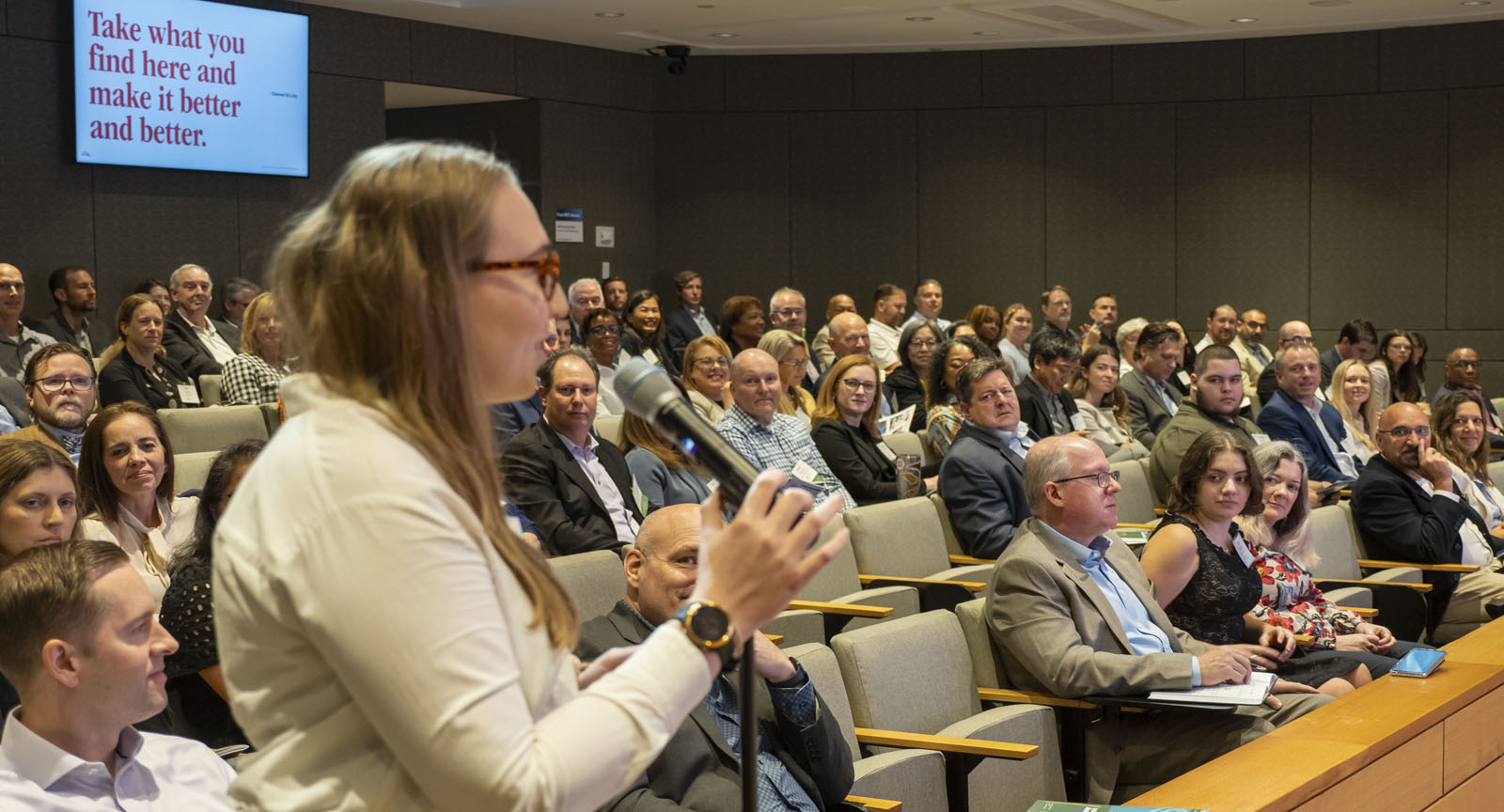
More than 220 member representatives packed the NC Biotechnology Center on Wednesday, Sept. 18, for the NCLifeSci Annual Meeting where they learned from expert panels on AI, patient advocacy and what the future holds for the patient experience and from a keynote exploring Lilly’s growth in the state. The meeting marked the 30th anniversary of the NC Life Sciences Organization.
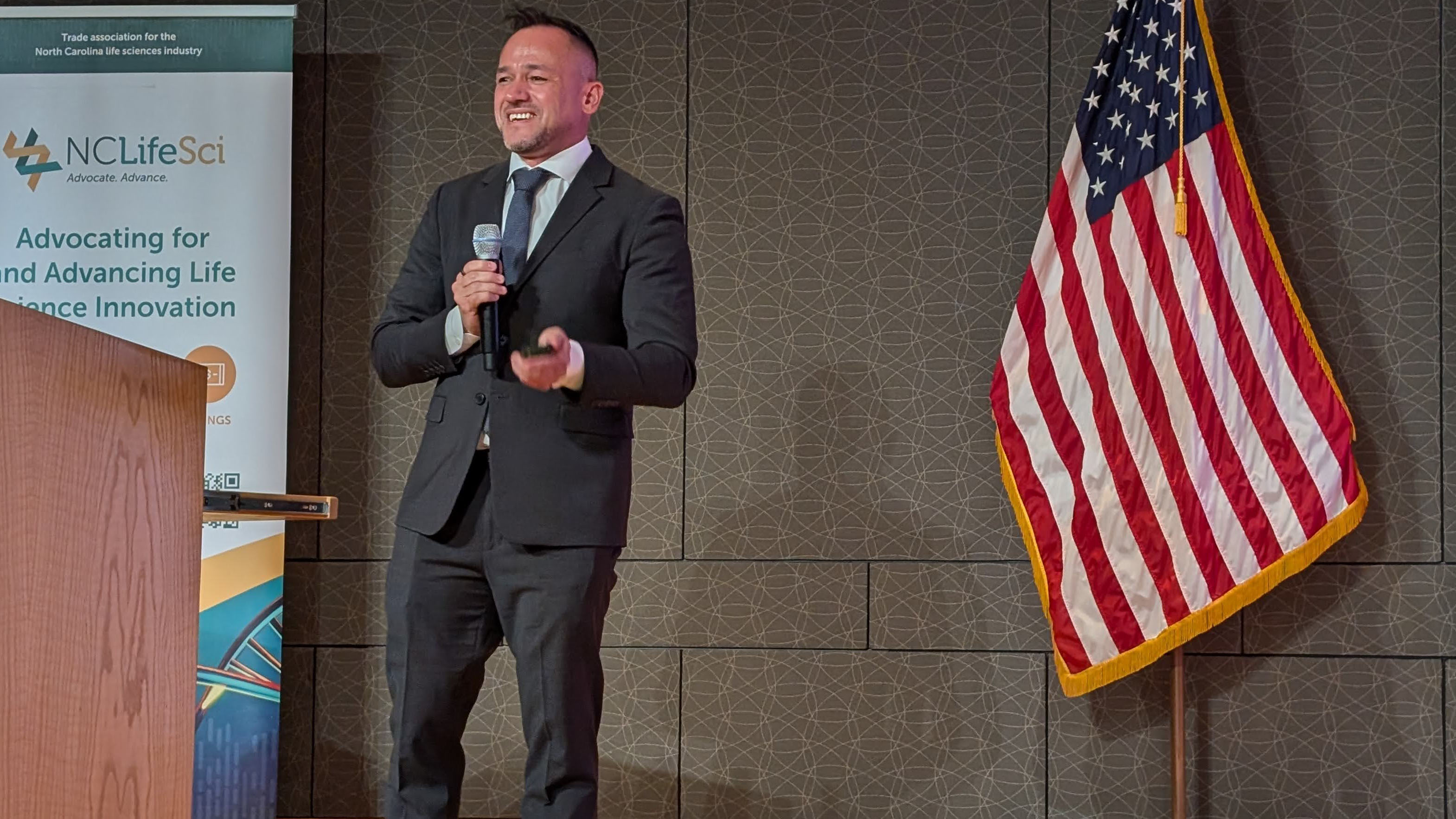
Keynote: The Future of Pharma Manufacturing is Now
Evie Smith, director of The Conafay Group, introduced the meeting’s keynote speaker, Edgardo Hernandez, executive vice president and president, manufacturing operations at Eli Lilly and Company. Hernandez gave a talk entitled, “The Future of Pharma Manufacturing is Now: The Role of Strategic Partnerships.”
Hernandez talked about Lilly’s core values of integrity, excellence and respect for people and said the company’s growth strategy was predicated on the discovery of new medicines and a core principle of safety.
Hernadez said Lilly had invested $20 billion in new facilities since 2020, starting with its $1.7 billion RTP site, its first site built on an undeveloped piece of land in 40 years. The RTP facility went from groundbreaking to FDA approval in less than three years and was followed by Lilly’s $2 billion, 400-acre site in Concord that was up and running in two and a half years. Lilly's new facilities are highly automated with a goal of being completely automated in the future.
Strong community, government and academic partnerships with organizations like NCLifeSci, NCBiotech, BioWork, Wake Tech and Durham Tech are the keys to Lilly’s expansion in North Carolina, Hernandez said. The company has been able to move quickly in building and staffing its facilities in the state.
Business Meeting
During the day's Business Meeting, members voted to approve the following individuals to join the NCLifeSci Board of Directors:
- Tom Alapaattikoski, CEO, Brinter;
- Harold Alterson, chief quality officer, Humacyte;
- Matt Goodrich, corporate real estate adviser, Davis Moore;
- Nikki Heron, chief financial officer, Tavros Therapeutics; and
- Paul Lewus, VP, NC site operations, Amgen.
In addition, Dan Peterson, VP, industry & government affairs for Cook Medical, and Maria Stauffer, executive director, proprietary products at Alexandria Real Estate Equities, were approved to finish the remaining year of the terms of Blake Edwards and Deepak Jain, who stepped down from their board positions.
NCLifeSci President Laura Gunter introduced the 2024 recipients of the Samuel M. Taylor Memorial Life Sciences Scholarship. The scholarship, established in honor of NCLifeSci Founding President Sam Taylor, has raised over $250,000 and awarded 18 scholarships to 14 students since its inception.
The 2024 Taylor scholarship recipients are
- Lila Bradshaw from Johnston County Community College
- Kiera Darden from Durham Technical College
- Hesbu Gaman from Durham Technical College
- A.J. Johnson from Central Carolina Community College and
- Frankie Nobles from Guilford Technical Community College.
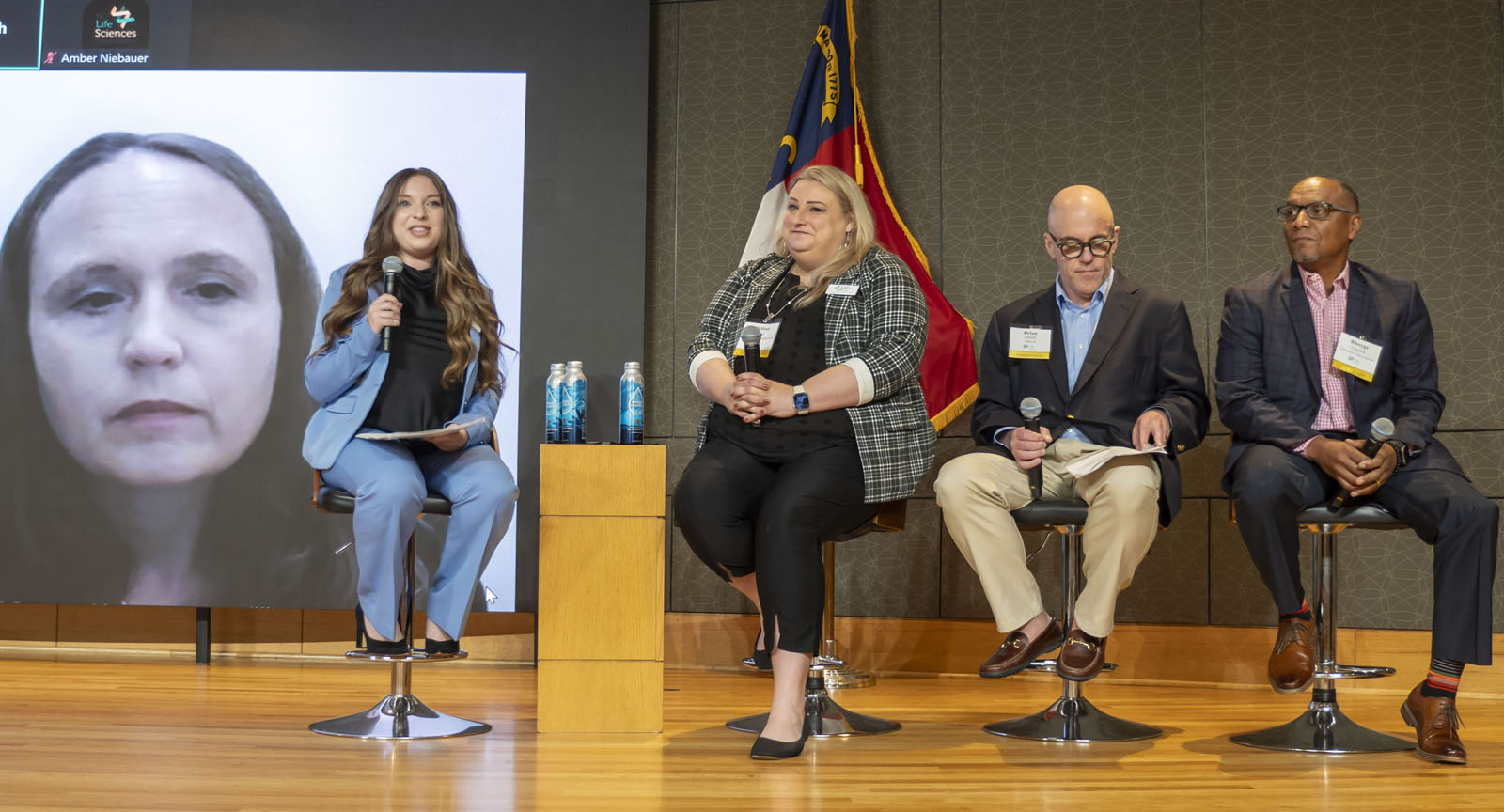
Panel 1: Working with Patient Advocates
The first panel discussion of the day was moderated by Laura Srebnik, BIO’s director, state government affairs, Southern region, and comprised
- Karin Hoelzer, senior director, policy and regulatory affairs, National Organization for Rare Disorders;
- Melissa Horn, director of state legislative affairs, Arthritis Foundation;
- Brian Smith, executive director of alliance development and strategic advocacy, Merck; and
- Rhoyge Traylor, senior director, global patient engagement, Edwards Lifesciences.
The panel highlighted key collaborations between biopharmaceutical companies and patient advocacy groups, including Merck's partnership with the Arthritis Foundation and Edwards Lifesciences' efforts in patient engagement. The panelists stressed the importance of long-term partnerships, transparency and clear communication to build patient-centric policies. Specific policy issues the panel discussed included copay accumulator bands, biomarker testing coverage and the Carroll Act's impact on heart-valve disease research funding.
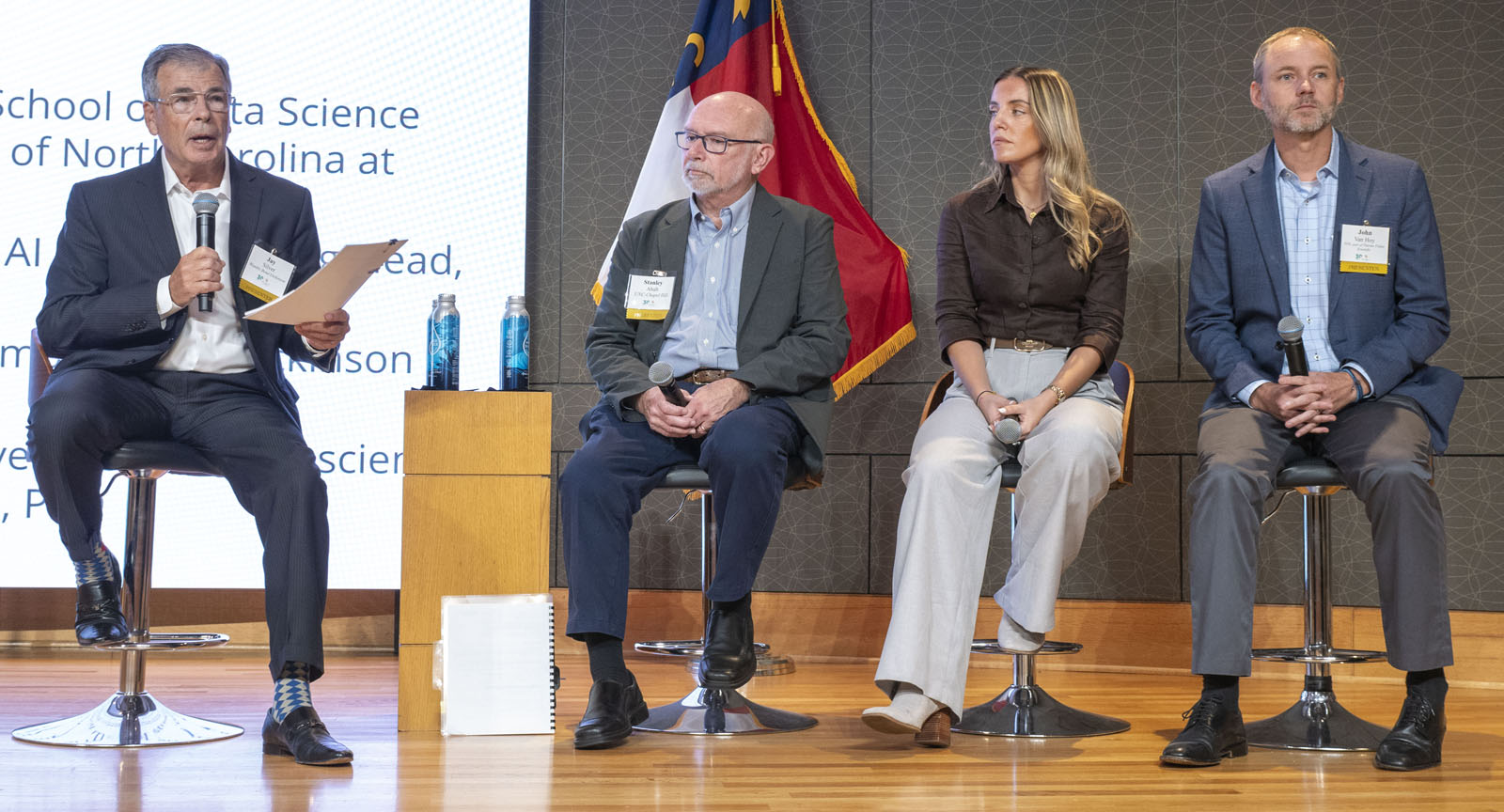
Panel 2: Best Practices and Lessons Learned from AI
Brian Stoker, Grifols’ senior manager, corporate affairs, introduced the day’s second panel:
- Stanley Ahalt, dean, School of Data Science and Society, University of North Carolina at Chapel Hill
- Marinela Profi, global AI market strategy lead, SAS
- Jay Silver, partner, Womble Bond (moderator)
- John Van Hoy, executive director, data science and advanced analytics, the PPD clinical research business of Thermo Fisher
The panel discussed the evolution and implications of generative AI, emphasizing its transformative capabilities and unique challenges, particularly in the life sciences. Key points included the rapid advancements in generative AI, such as OpenAI's 4.01, and the need for careful data management and ethical considerations.
The panelists stressed that AI will only get better and the importance of human oversight, data governance, and model transparency. They shared success stories, like PPD's use of AI for quality checks and SAS's synthetic data generation for clinical trials. They addressed challenges such as talent recruitment, regulatory compliance and ensuring patient safety. The session concluded with a focus on the future potential of AI to improve health care and drug discovery.
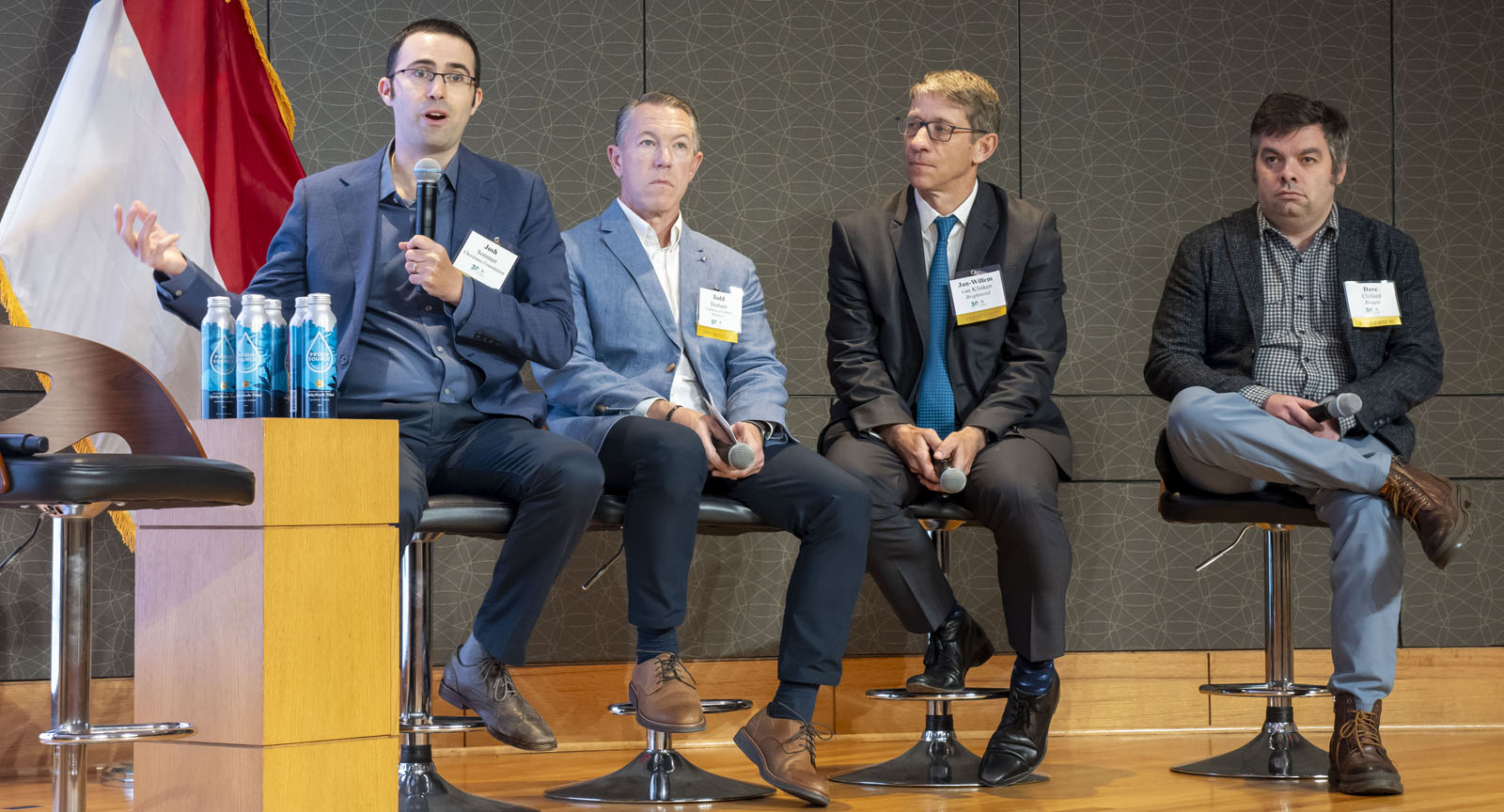
Panel 3: Future Technology and the Patient Experience
Christopher Capel, a partner at Smith Anderson, introduced the day’s final panel moderated by Jude Samulski, Ph.D., co-founder of Jurata Thin Film. The panel comprised
- Dave Clifford, head, data science and applied machine earning at Biogen;
- Todd Durham, senior vice president, clinical and outcomes research of the Foundation Fighting Blindness;
- Josh Sommer, executive director of the Chordoma Foundation; and
- Jan-Willem van Klinken, senior vice president of medical, scientific & regulatory affairs at Brightseed.
The discussion focused on the future of Research Triangle Park and its role in addressing unmet medical needs through innovation. Key points included the importance of AI in accelerating drug discovery and the need for better regulatory pathways.
Sommer highlighted the challenge of developing therapies for rare diseases like chordoma with a relatively small potential market. Durham discussed the success of gene therapy for retinal diseases and the need for better outcome measures. Clifford emphasized the potential of AI in clinical research and the importance of integrating patient data. Van Klinken talked about the role of natural bioactives in drug development and the potential of gene editing in enhancing plant-derived medicines.
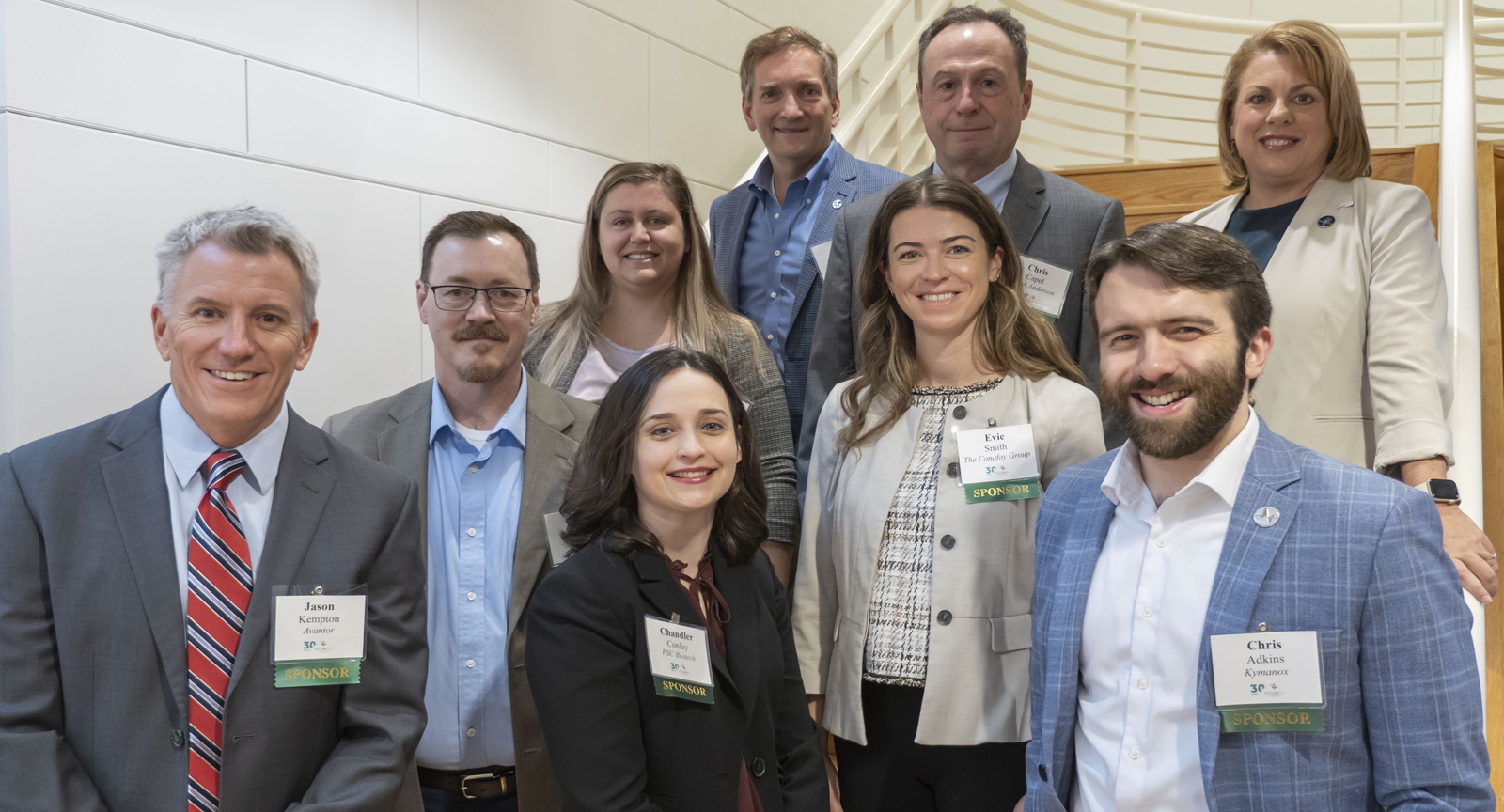
Thank you to our Annual Meeting sponsors
Podcast - Maynard Nexsen
Platinum - American Laboratory Trading, Avantor, Azzur Group and Kymanox
Gold - FUJIFILM Diosynth Biotechnologies, Grifols, Novartis, PSC Biotech, Smith Anderson and The Conafay Group
Silver - AdvaMed, Alexandria Real Estate Equities, BioCryst, Eli Lilly and Company, Flad Architects, KBI Biopharma, New England Biolabs, PHC Corporation of North America, UCB and UniFirst
Bronze - Amgen, BIO, Marsh McLennan Agency, Mispro, NIIMBL, Nikon, Novonesis, Safety Partners, Surplus Solutions and TeamLogic IT
